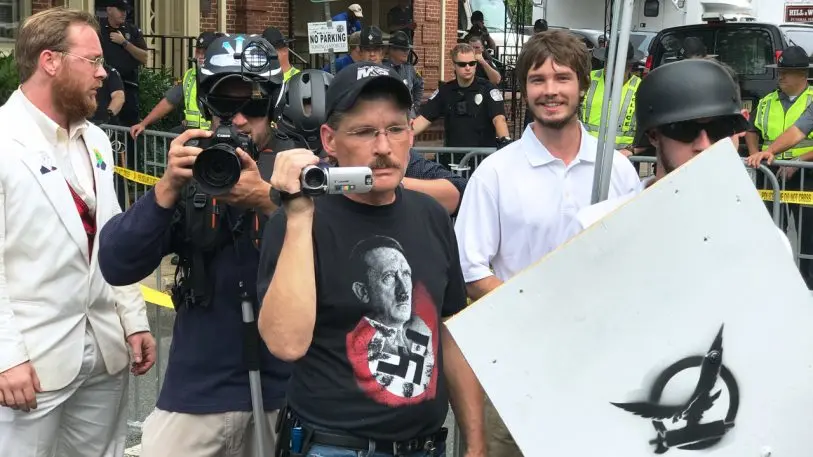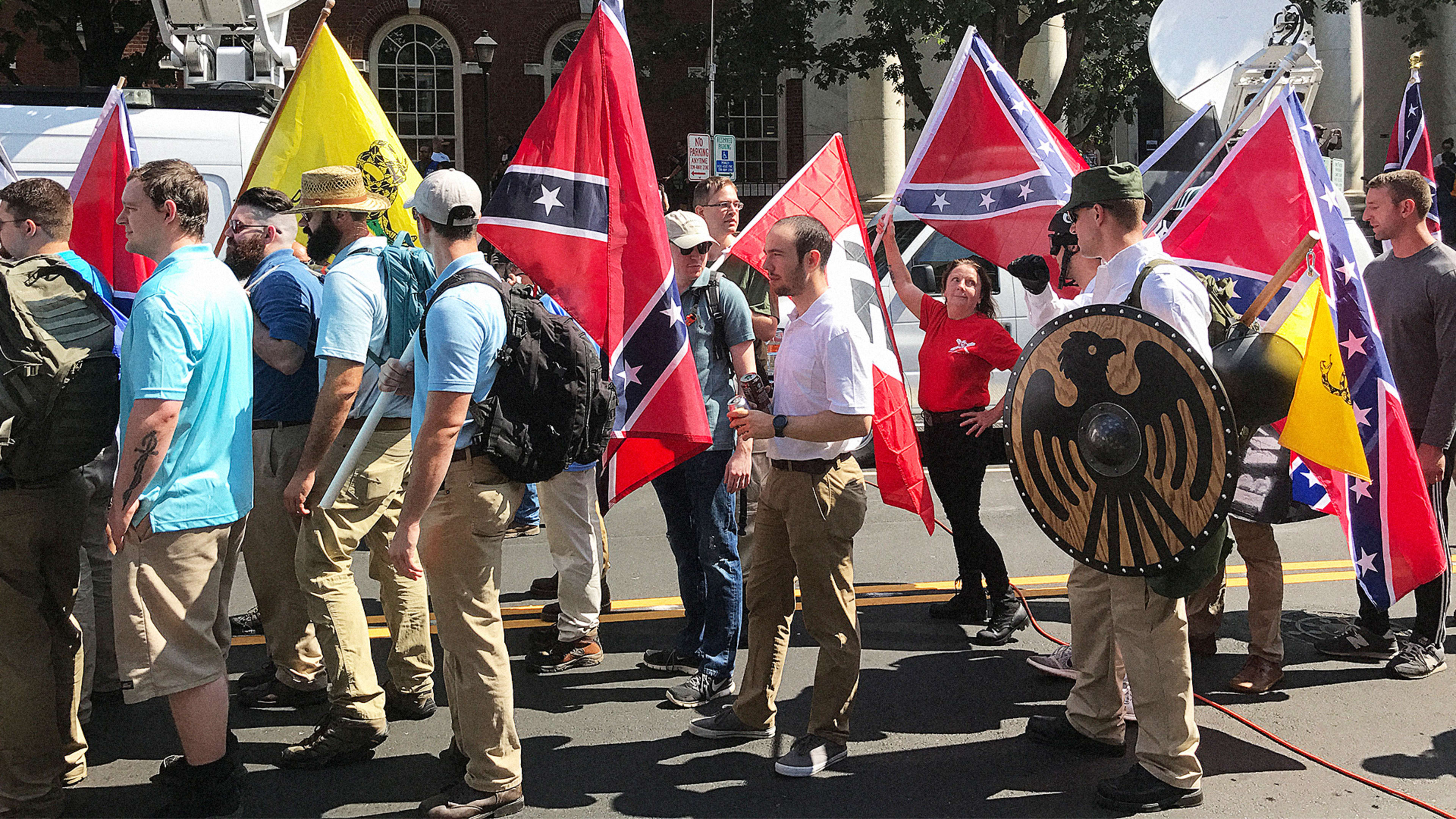An alt-right rally in Charlottesville that left one anti-racist counterprotester dead. At least five school shootings in the first two months of 2018. One emerged out of disturbing, wide-scale organizing; the others, from individual motivation. But all testify to the way in which hate has bled into the mainstream under the Donald Trump administration.
In its annual assessment of hate and extremism in the United States, the nonprofit Southern Poverty Law Center tracked an unfortunate (but unsurprising) rise in hate groups in 2017 compared to 2016–a year in which, due to the Trump campaign, hate activity also reached a new peak. The organizations annual report, Year in Hate and Extremism, identified 954 active hate groups in America–a 4% jump from last year.
The majority of these groups originated in the alt-right–the polo-shirt-wearing white supremacist new wave that congregates around Breitbart News–neo-Nazi, and white supremacist movements. Ku Klux Klan groups, in contrast, fell from 130 to 72, indicating that the former categories of white supremacy are holding more sway.

Black nationalist groups like the Nation of Islam also grew in response to Trump’s racist rhetoric, which has refueled a desire among these groups to break away from the rest of America. (The SPLC notes that these 233 groups are not to be confused with activist organizations like Black Lives Matter that work to end systemic racism.)
And this year, the SPLC added a new ideology to its list of hate groups: men’s supremacy organizations. These two groups, clustered around the websites Return of Kings and A Voice For Men, “malign all women in the same way hate groups do other classes of people,” says Heidi Beirich, head of the SPLC’s Intelligence Project, in a press call. In looking back on a year in which the #MeToo movement and damning allegations of sexual misconduct against Harvey Weinstein, Matt Lauer, Mario Batali, and so many more men both in the public eye and outside of it, gendered hate was an especially necessary category for the SPLC to take stock of.
The small number of groups in the men’s right category–just two, relative to the 121 listed, for example, under “Neo-Nazi”–testifies to a significant limit to the hate-group count, of which Beirich is very aware. “It’s just one way to gauge hate activity,” Beirich says. “Another place where we’ve seen hate ideas unfortunately spread way too fast is on the web, and we have a lot of extremists gravitating to those places to express those ideas.” While bands of people organized to transfer the ideas of far-right websites like The Daily Stormer and The Right Stuff into on-the-ground rallies, such as the horrific event in Charlottesville, much of the hate in this country flows through the internet. Mass-shooting perpetrators like Dylann Roof and Nikolas Jacob Cruz, who killed 17 teenagers at a high school in Parkland, Florida, on February 14 of this year, were not hate-group members, per say, but visited forums and learned many of their tactics and ideologies there. Sexual harassers and misogynists often hide behind fake usernames and use social media to attack women.

Beirich is unequivocal on the driving force behind all of these trends. “There has been a substantial emboldening of the radical right, and that is largely due to the actions of President Trump, who has tweeted out hate materials and made light of the threat to our society posed by hate groups,” she says. “Trump has brought them into the political system in a way that hasn’t happened in decades.” Until Trump began his campaign, she adds, white supremacist groups used to view politics as a waste of time. When the SPLC analyzed 10,000 posts on white nationalist website Stormfront a few years ago, the most popular topics, by a long shot, were Holocaust denial and black-on-black crime. This past year, the nonprofit replicated the analysis and found that 23% of the posts related to Trump. With the understanding that their views are now accepted in the political sphere, even glorified, far-right members are beginning to run for office: Art Jones, a Holocaust denier, secured the GOP’s nomination for a vacant congressional seat in Illinois, and the GOP candidate running to replace Paul Ryan’s seat in Wisconsin recently appeared on the anti-Semitic white-power podcast, Fash the Nation. This is to say nothing, of course, of how Trump’s track record of misogyny may have emboldened abusers and harassers.
As disturbing as these trends are, the extremity of the situation, Beirich says, has motivated industries, specifically tech, to fight against it. “After Charlottesville, the tech world seemed to wake up to the threats that these ideas and these groups pose.” SPLC, she adds, has been lobbying big tech companies like Facebook and Twitter for years to remove hate-group activity from their platforms, and they’ve finally begun to do so. Facebook has been taking down hate-group pages, though “they have a long way to go, and the reports about Russian interference certainly show that,” Beirich says. Twitter updated its rules on hate in December, and PayPal has begun barring hate groups from using its platforms to transfer money–which activist organizations like Color of Change have also been pushing for. “There’s more that needs to be done, but these are steps in the right direction,” Beirich says.
Recognize your brand’s excellence by applying to this year’s Brands That Matter Awards before the early-rate deadline, May 3.
